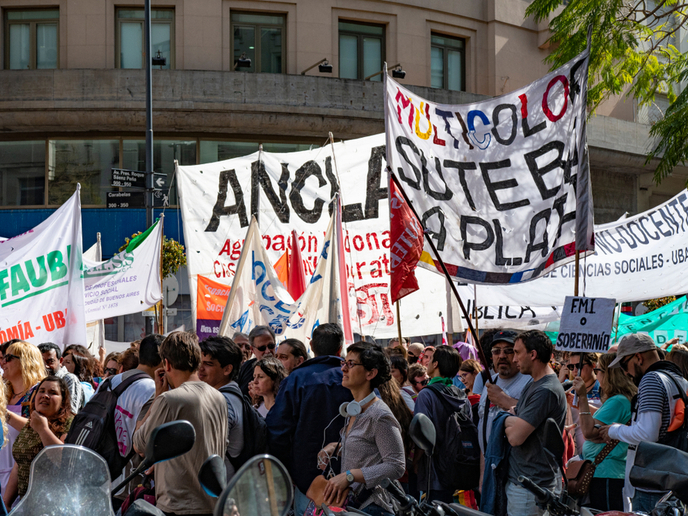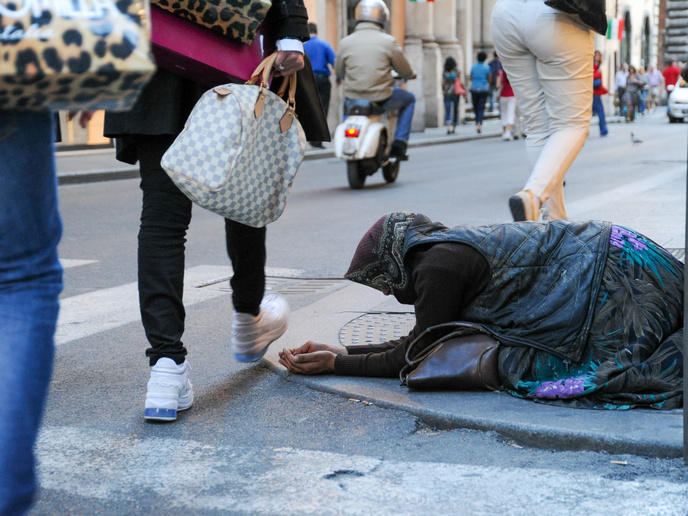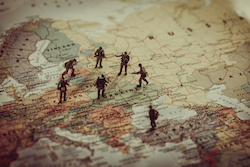Politics, the art of the possible – but who chooses party politics and who chooses protest, and why?
POLPART (How citizens try to influence politics and why. International comparisons of movement and party politics) has been tracking the trends and movements regarding citizens’ political participation in both Europe and Latin America. One of the fundamental questions they wanted to answer was why some individuals are drawn to political participation through the formal political process and why others prefer to engage in protest politics. The best way to answer these questions was to talk to citizens themselves, which POLPART researchers did in a number of focus groups, covering four democracies they named ‘full’ democracies (Germany, the Netherlands, Switzerland and the UK) and four they referred to as ‘flawed’ democracies (Argentina, Brazil, Hungary and Romania), plus Greece. The citizens are angry At the start of the focus group sessions, the POLPART team asked their respondents what came to their mind first when thinking about politics. “The response was amazingly negative and cynical with low trust in political institutions, especially in our ‘flawed’ democracy case studies,” exclaims Prof. Klandermans who received an ERC grant to lead this project. “Even in positive evaluations it was more a matter of aspiration and wishful thinking. We received a lot of differing reactions, but they were primarily gut reactions. Although later on in the group discussions, the evaluations became more subtle, the sentiment remained nonetheless negative.” This is hardly surprising. Europe is still struggling with the after-effects of the economic crisis, immigration has become a major polarising issue since the 2015 migration crisis and populist parties of both the left and right have become prominent across the continent, from Spain to Sweden, and Italy to Germany. In Argentina and Brazil, both countries are currently experiencing recession, and inequality has been rising again. Growing discord about traditional party politics there was best captured in the victory of Jair Bolsonaro as Brazil’s president in October 2018 and frequent pot-banging street protests in Buenos Aires against an economic crisis and austerity measures. Voting is still the top choice But the project did capture some positive news. “The single largest political activity we recorded is still voting (in elections), followed by signing a petition and voting in a referendum,” explains Prof. Klandermans. “So, we can safely say that a large proportion of citizens are still actively engaged with and committed to formal political processes, regardless of the current levels of anger and mistrust towards politics in general.” But what is it that drives people to engage in politics in the first place? With only one exception, that being poverty, citizens are more prepared to participate in political action the more aggrieved they are. “This was similar for both ‘full’ and ‘flawed’ democracies,” explains Prof. Klandermans. “Importantly, anger makes people prepared to engage in movement/protest politics rather than party politics across all issues, whether that means signing a petition or joining a demonstration.” The more people feel that their participation in a specific activity makes a difference, the more they are willing to engage in that activity. “The strongest factor stimulating political participation overall is external efficacy. Interestingly, those who opted for contacting politicians found that strategy to be above average for effectiveness,” says Prof. Klandermans. “Apparently the link between effort and effect is strongest for this direct contact with elected representatives.” To vote or to protest? That is the question Overall, POLPART found that the angrier people are, the more likely it is that they opt for either party or protest politics. “More cynical people are likelier to vote or sign an official petition, whilst the more internally efficacious people feel they are, the more likely it is that they choose a form of protest politics,” explains Prof. Klandermans. POLPART also saw that party activism in the past makes current party activity more likely. Having been involved in movement activities in the past makes future movement activity more likely. “But interestingly, civic engagement does not influence engagement in politics in a systematic manner,” says Prof. Klandermans. “We found civic participation to be either unrelated or negatively correlated to political engagement.” Prof. Klandermans and his team are continuing to work on further POLPART publications, and in 2020 their full data will be made available to the whole academic community.







